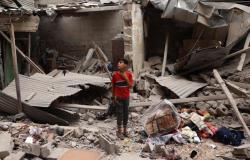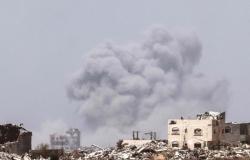
The former commander of the US Ground Forces in Europe, reserve lieutenant general Ben Hodges, has said that Poland could be politically determined to devote its capabilities only to the defense of Poland and not outside the country. The Prime Minister of Lithuania Ingrida Šimonytė has claimed that Poland has legal restrictions on sending its forces outside the country, but then she said that she had misunderstood.
On Friday, Reserve General R. Andrzejczak participated in the conference “From Vilnius to Washington: Shaping NATO’s Future in the New Era of Collective Defense” organized by the Ministry of National Defense and General Jonas Žemaitis Lithuanian Military Academy.
In an interview with the portal tv3.lt, the former Chief of the General Staff of the Polish Armed Forces said that such considerations only harm the unity of NATO and are rather strange.
“I have never heard any political guidelines and comments that Poland has any restrictions or does not have the will to protect its partners,” said R. Andrzejczak in an interview.
General Ben Hodges, the former commander of US ground forces in Europe, who visited Lithuania in February, publicly said that if Russia decides to attack Lithuania or any other Baltic country, we may have a period of uncertainty, when the country may be left to defend itself until NATO makes a political decision on the response. He also mentioned that he knows that Poland has made a political decision not to send its military forces outside Poland to help the Baltic countries. Therefore, it is said that Lithuania must prepare to stand alone for two weeks. To your knowledge, has Poland made such a political decision?
I think this is some kind of misunderstanding or misinterpretation. First of all, we haven’t really changed any rules for several years. Today, for example, we have front-line forces in Latvia in peacetime and they are ready to act in crisis situations in wartime. So it sounds too weird to me.
Secondly, if we look at Poland, as one of NATO’s biggest partners on the eastern flank, we do not spend 2% on defense. from the gross domestic product, which everyone should do, but we invest 4 percent. A few days ago, the president and the prime minister visited the US White House, talked to the US president, and we got permission to buy additional long-range missiles, 96 state-of-the-art attack helicopters and a lot of other military equipment. We are buying a number of F-35 fighters, there will be about 32 brand new aircraft, we are buying HIMARS, Patriot, M-1 tanks – from the US and South Korea. We are creating additional capacity in Poland, we will have a total of about 300 thousand. soldiers
We have political consensus and public support, so I don’t see any signs of doubting Poland’s credibility. There are 10 thousand in Poland. US soldiers. I certainly don’t see or hear any question marks about it. I have never heard any political guidelines and comments that Poland has any restrictions or does not have the will to defend its partners.
But we are talking about that gray period between a potential attack and NATO’s political decision to respond to the aggressor.
Again, these are questions about indications and warnings. We see the Russians, we hear the Russians, we know what they are doing, so a surprise attack that leaves NATO politically and intelligence unprepared seems unlikely to me. This, of course, depends on a political decision in the North Atlantic Council to activate the force. Christopher Cavoli, the commander of NATO forces in Europe, is one of the coolest generals I have met in my life, he is very competent and focused on the regional plans that are being implemented.
So while I don’t know exactly what General B. Hodges specifically said, we still have our Article 5, which means “not one inch.” In Lithuania and Poland we say “not one centimeter”. And that’s less than an inch. But before we go to Article 5, we have Article 3, which talks about the preparation of each country. Lithuania is really doing a lot. Yesterday I was in Pabrade, we inspected the infrastructure, including the one for receiving troops, if necessary. You also invest quite a bit, allocating more than 2 percent to defense. from gross domestic product. So the 3rd article is the beginning of everything, and then we have the 4th and the 5th. I would be more optimistic about that. But I don’t know exactly what Mr. Hodges meant.
B. Hodges’ words were accompanied by Lithuanian Prime Minister Ingrida Šimonytė’s statements that there are legal restrictions in Poland to use military capabilities outside of Poland. So what might those legal restrictions be?
I don’t see any legal obstacles. Of course, there is always a national constitutional right to make a decision. So that would be a question for our president and prime minister. But I don’t see any legal restrictions today. NATO is an alliance of independent countries and will always rely on Article 5. But realistically, what we see around us, if we question our will to defend and fellowship, it will be a tragedy. Therefore, as a reserve soldier, I strongly support unity, I support the philosophy of alliances, mutual agreement, trust and responsibility. I don’t see any other way in this situation. To be honest, if we question NATO’s will and unity, I don’t think it will work for us.
Are you in Poland debating what could happen if there was a hybrid-style attack from Russia or a Hamas-style attack where the aim is not to occupy the territory but to harm civilians. Is this a NATO issue or a national one?
Well, I guess we shouldn’t be surprised if that happens. Russia’s imperial strategy is the same as it has been, they are rebuilding their empire and they are not shying away from using very different instruments. Thus, the goal is the same, the path they take to achieve the goal is slightly different, and the instruments chosen depend on Russia’s capabilities and perception of the strategic situation. Let’s see, in 2007, they used a cyber attack in Estonia to achieve the same goal – to restore the empire. In 2008, they decided to take hard power in Georgia. Then they used private military companies in Syria, such as the Wagner group. Also they used little green men in Crimea and then switched to hard power in Ukraine. So who could be surprised here? Russia always attacks in various ways.
So the possibility of an attack using proxy actors is quite possible. But every country has to protect its critical infrastructure, its cyber infrastructure, and we also have to protect our narratives. If we begin to discuss such comments as you mentioned earlier, then we are not necessarily strengthening our credibility and mutual trust as a state, as NATO, as a civilization. Here in Poland, there is now a lot of discussion about how to increase resilience. War is always a political act, it is not just a clash of armies. Yesterday there was a wonderful discussion about the moral aspects of war, said the archbishop. Patriotism and resilience begin in kindergarten, continue through the education system, schools, other public institutions, the medical system, and hard power resides in the military. So everyone is responsible for the defense of the country. The Polish Constitution is very clear, I talk about it everywhere I travel. It is the responsibility of every Polish citizen to defend the country. It doesn’t matter whether they are men or women, soldiers or civilians, young or old, representatives of different political currents, everyone is responsible. How we do this depends on our organization.
Poland allocates 4 percent. from gross domestic product for defense. Have you had any tax changes in the country in the name of increasing defense spending?
This is a good question for the Minister of Finance, as far as I know additional financial instruments have been used to increase defense funding. But the most important thing is my message to motivate everyone: it is technically possible, all that matters is political leadership and public support. Everywhere I go in Poland, I thank people everywhere for being so responsible in agreeing to additional funding. If the situation in Ukraine worsens, we will allocate more.
The war in Ukraine is not a two-year war, but a ten-year war. It started in 2014, the first phase included green men, proxies, preparation, political corruption, using energy to fight and then there was another phase. If the situation in Ukraine worsens, we will allocate 5 or 10 percent. If today 2 percent are not spent intelligently and responsibly, there will certainly be more in the future. Russia is the same, Russia is always at war in the mental sense. Lithuania and Poland know this very well from history.
Tags: Polish reserve general surprised hear deliberations Lithuania heard restrictions protect partners
-




